Was social media a good invention? One way to quantify the value of a product is to find out how many of the people who use it wish it had never been invented. Feelings of regret or resentment are common with addictive products (cigarettes, for example) and addictive activities like gambling, even if most users say they enjoy them.
For nonaddictive products — hairbrushes, say, or bicycles, walkie-talkies or ketchup — it’s rare to find people who use the product every day yet wish it could be banished from the world. For most products, those who don’t like the product can simply … not use it.
What about social media platforms? They achieved global market penetration faster than almost any product in history. The category took hold in the early aughts with Friendster, MySpace and the one that rose to dominance: Facebook. By 2020, more than half of all humans were using some form of social media. So if this were any normal product we’d assume that people love it and are grateful to the companies that provide it to them — without charge, no less.
But it turns out that it can be hard for people who don’t like social media to avoid it, because when everyone else is on it, the abstainers begin to miss out on information, trends and gossip. This is especially painful for adolescents, whose social networks have migrated, since the early 2010s, onto a few giant platforms. Nearly all American teenagers use social media regularly, and they spend an average of nearly five hours a day just on these platforms.
So what does Gen Z really think about social media? Is it more like walkie-talkies, where hardly anyone wished they had never been invented? Or is it more like cigarettes, where smokers often say they enjoy smoking, but more than 71 percent of smokers (in one 2014 survey) regret ever starting?
We recently collaborated on a nationally representative survey of 1,006 Gen Z adults (ages 18-27). We asked them online about their own social media use, about their views on the effects of social media on themselves and on society and about what kinds of reforms they’d support. Here’s what we found.
Daily time spent by Gen Z on social media
For 18- to 27-year-olds who use social media

3 hours
or less
7 hours
or more
4 to 6 hours
38%
39%
23%

3 hours or less
4 to 6 hours
7 hours or more
38%
39%
23%

3 hours or less
4 to 6 hours
7 hours or more
38%
39%
23%
Source: Harris Poll/Zach Rausch
Note: Figures may not add up to 100 percent due to rounding.
What type of impact has social media had on your emotional health?
For 18- to 27-year-olds
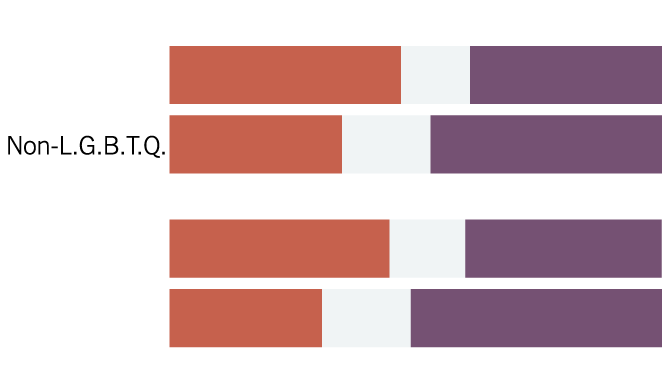
Negative
None
Positive
47%
14%
39%
L.G.B.T.Q.
35%
18%
47%
44%
17%
40%
Women
31%
18%
51%
Men
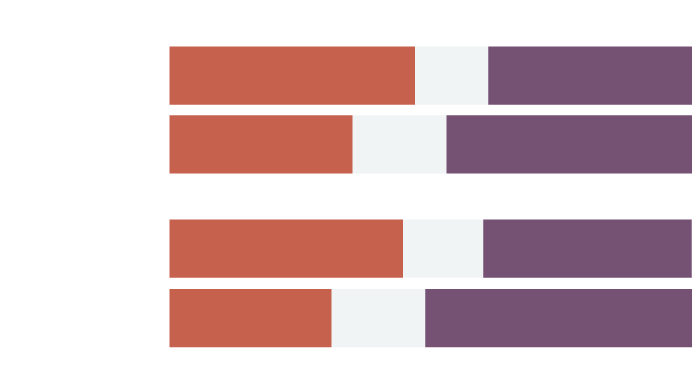
Negative
None
Positive
47%
14%
39%
L.G.B.T.Q.
35%
18%
47%
Non-L.G.B.T.Q.
44%
17%
40%
Women
31%
18%
51%
Men

Negative
None
Positive
L.G.B.T.Q
47%
14%
39%
Non-L.G.B.T.Q.
35%
18%
47%
Women
44%
16%
40%
Men
31%
18%
51%
Source: Harris Poll/Zach Rausch
Note: Figures may not add up to 100 percent due to rounding.
Almost half of Gen Z wishes social media platforms like X and TikTok didn’t exist
Percentage of Gen Z respondents who agree with the statement “I wish ___ had never been invented”
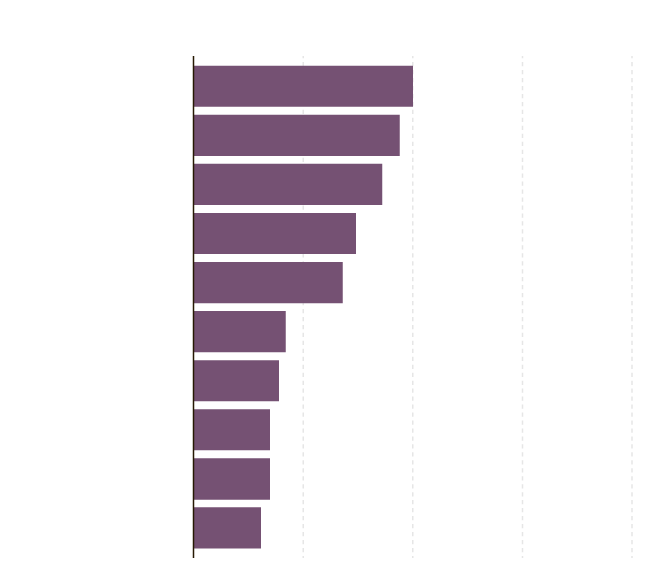
0%
25%
50%
75%
100%
X/Twitter
50%
TikTok
47%
Snapchat
43%
37%
34%
Smartphones
21%
Messaging apps
19%
The internet
17%
Netflix
17%
YouTube
15%
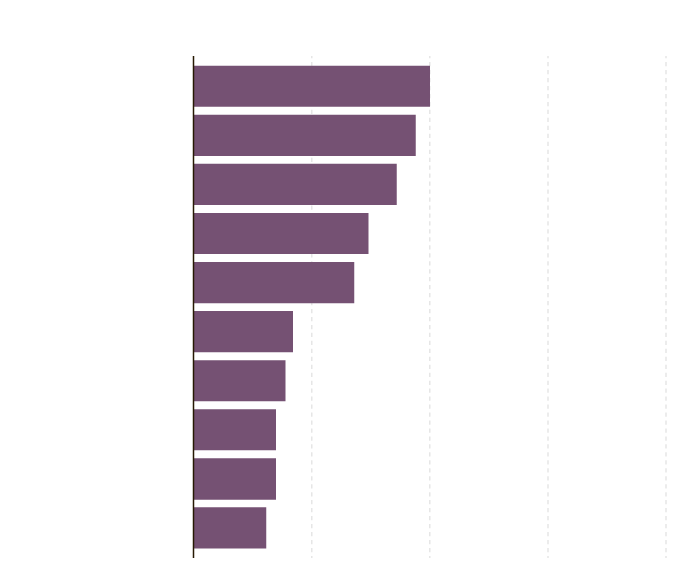
0%
25%
50%
75%
100%
X/Twitter
50%
TikTok
47%
Snapchat
43%
37%
34%
Smartphones
21%
Messaging apps
19%
The internet
17%
Netflix
17%
YouTube
15%
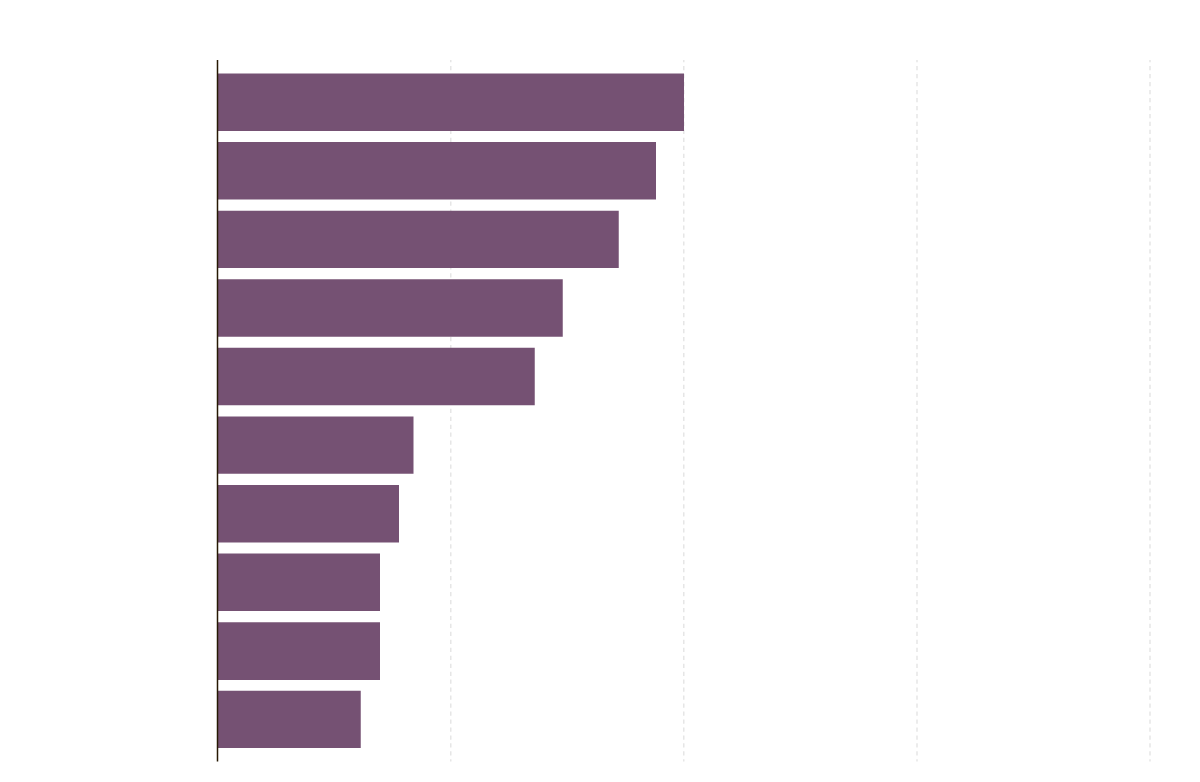
0%
25%
50%
75%
100%
50%
X/Twitter
47%
TikTok
43%
Snapchat
37%
34%
21%
Smartphones
Messaging apps
19%
The internet
17%
Netflix
17%
YouTube
15%
Source: Harris Poll/Zach Rausch







